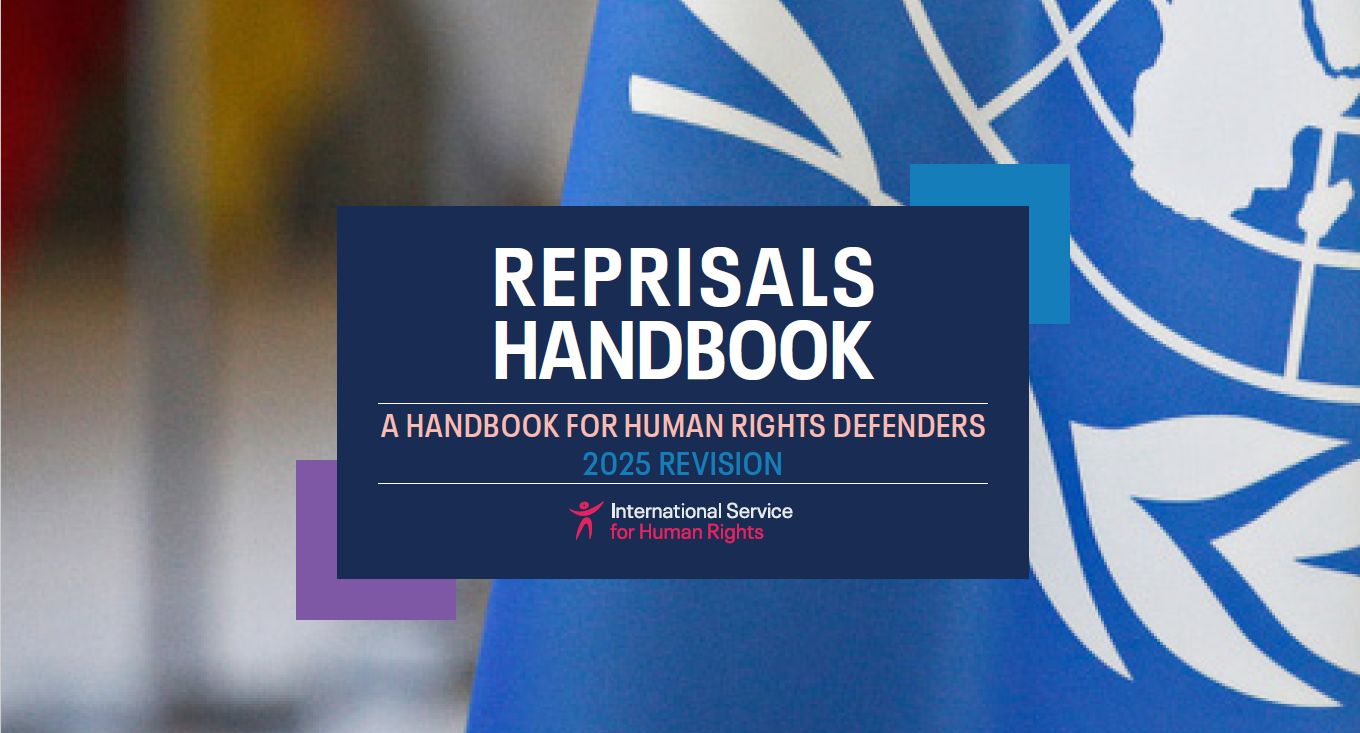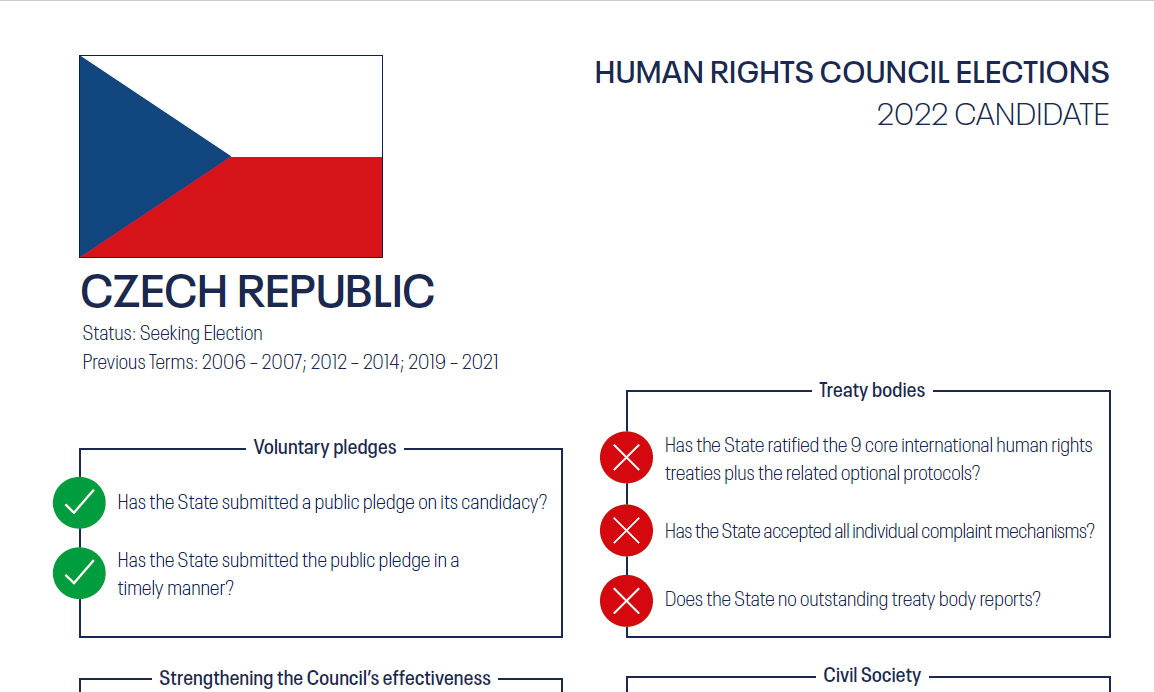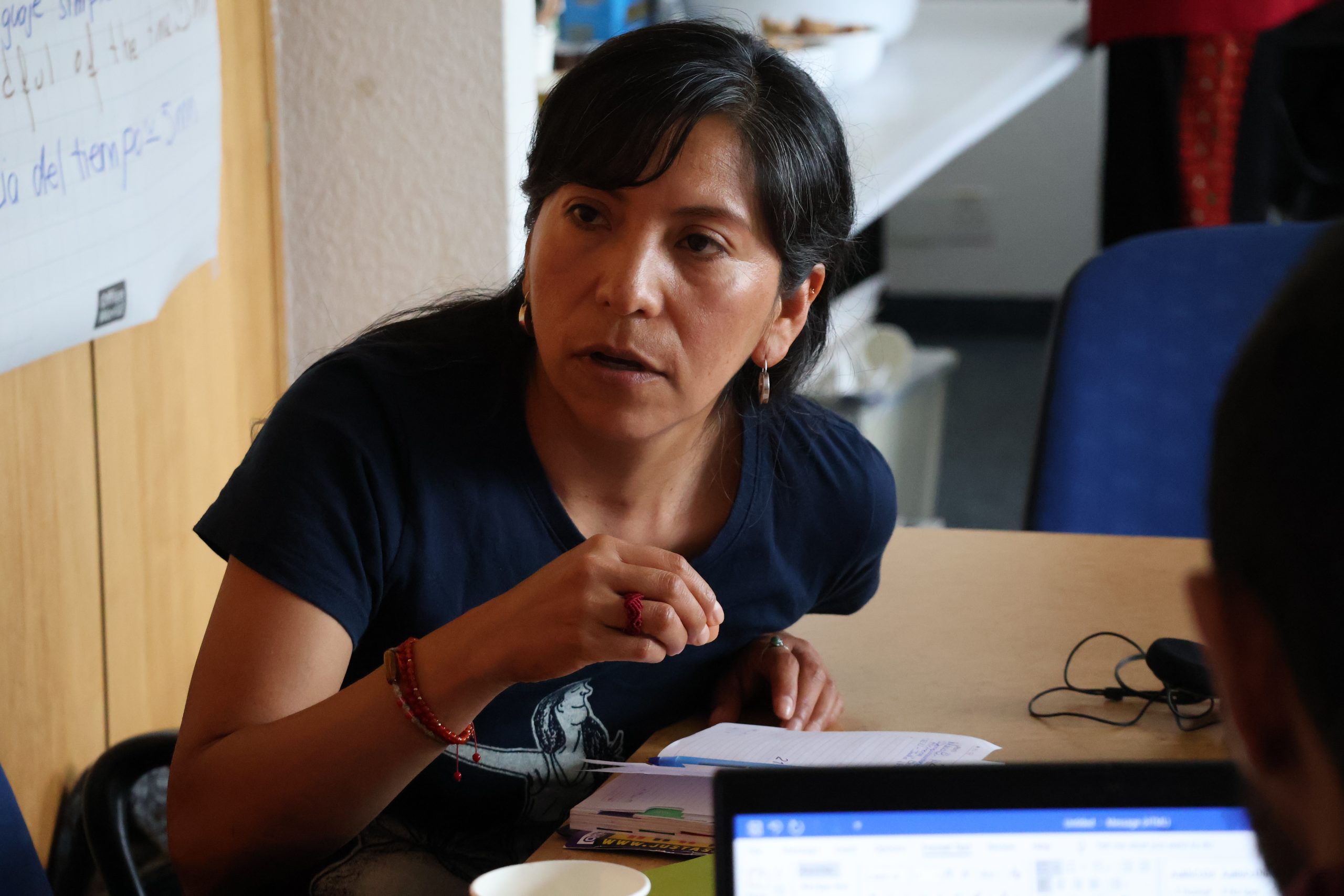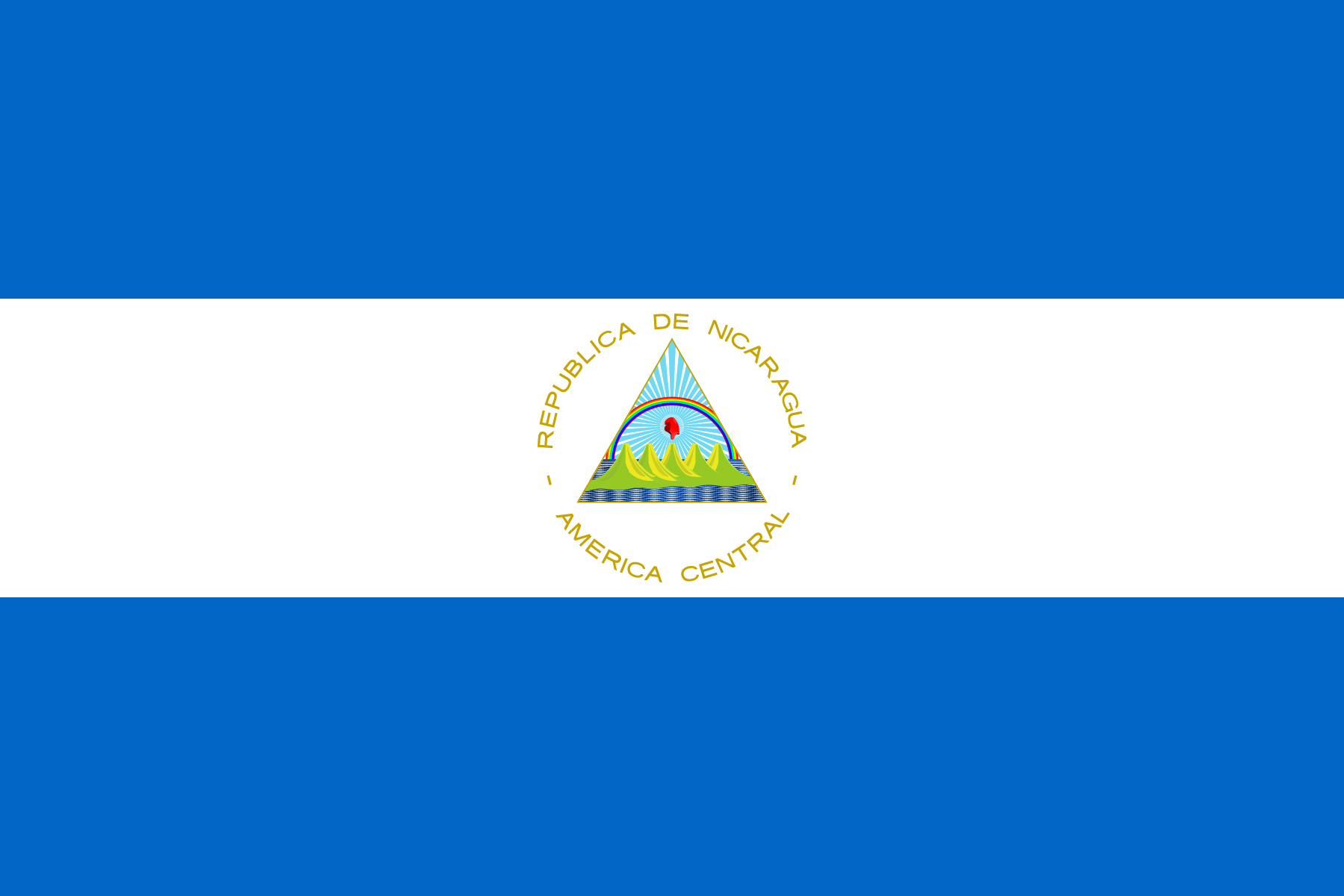On Thursday 7 April 2022, the United Nations General Assembly (UNGA) voted on a resolution to suspend Russia’s membership of the UN Human Rights Council (HRC). 93 States voted in favour of the resolution, reaching the two-thirds majority needed for such a move, while 24 States voted against it and 58 States abstained. Russia’s suspension has created a vacant seat to be filled by the Group of Eastern European States for the term expiring on 31 December 2023.
The Czech Republic has subsequently declared its candidature for the vacant seat at the HRC, and publicly shared the pledge and commitments prior to the elections to be held during the seventy-sixth Session of the General Assembly. Czech Republic has previously been a member of the HRC for terms in; 2006- 2007, 2012-2014 and 2019-2020.
ISHR has published a scorecard for the Czech Republic. The scorecard offers a quick ‘at-a-glance’ objective comparison of the human rights record of the candidate through criteria such as focusing on its cooperation with human rights bodies such as the Council, its support for civil society, its engagement with UN Treaty Bodies and Special Procedures, among others.
The Czech Republic’s voluntary pledges and commitments expound on what it will achieve as a member – at both domestic and international level. Together, both should inform voting States’ decisions of whether to support it in the election.
Through Council membership, States commit themselves to ‘uphold the highest standards in the promotion and protection of human rights,’ and to fully cooperate with the Council and its mechanisms. Voting States must treat human rights considerations as paramount in electing members to the Council, and prioritise human rights over political or economic interests.
Sources and criteria for the scorecards
The sources and criteria for the scorecards are set out below:
| ELEMENT |
SOURCE |
|
Previous terms
|
Previous terms OHCHR website, List of past members of the Human Rights Council
|
|
Submitted a public pledge on its candidacy
|
United Nations Documents Search
|
|
Submitted a public pledge on its candidacy in a timely manner
|
United Nations Documents Search or ISHR Web site if the candidate State provides it, by 1 June 2022.
|
|
Has the State supported all country-specific resolutions at the HRC or GA
|
The State did not vote against any country-specific resolution that is consistent with the objective human rights criteria and the promotion and protection of human rights at the HRC during its current or last term; or at the General Assembly in the last year.
|
|
Has the State played a leadership role on country situations at the Council
|
Fulfilled commitments set out in the joint statement at the 32nd Council session presented by Ireland, resulting in significant attention on at least two country situations, by leading (pen holder) or delivering a joint statement dedicated fully or substantially to a country situation, or leading a resolution (pen holder or member of core group) or a request for a special session (initiating the request as a sponsor).
*This includes any country situation in respect of which the State has played a non-public leadership role resulting in collective action at the Council
|
|
Has the State accepted all country visit requests
|
OHCHR website, Country visits and special procedures
*Country visits requests made more than 6 years ago without a reminder sent by the special procedures are not counted.
|
|
Has the State sent a substantive reply to all communications received from Special Procedures
|
OHCHR database, Communications sent and replies received
|
|
Has the State developed and published an action plan for implementation of the UPR recommendations
|
Information provided and published by the State
|
|
Has the State submitted a UPR mid-term report
|
OHCHR mid-term report page
|
|
Has the State ratified the 9 Core international human rights treaties and the related optional protocols
|
Ratification status of the 9 core international human rights treaties and optional protocols: ICCPR, ICESCR, ICERD, CEDAW,CRC, CAT, CED, CPRD, ICMW. Optional Protocols: ICCPR-OP2, CRC-OP-AC, CRC OPSC, OP-CAT
|
|
Has the State accepted all individual complaint mechanisms
|
Individual complaints mechanisms of 9 core international human rights treaties: ICCPR-OP1, CAT (art 22), CERD (art 14), CEDAW-OP, CRPD-OP, CED (art 31), CMW (art 77), ICESR-OP, CRC-OPIC
|
|
Does the State have no outstanding treaty body reports
|
OHCHR website, Reporting Status [as of 31.12.2021]
|
|
Does the State have no case of unresolved reprisals high-lighted in Secretary-General reports (2011-2021)
|
OHCHR website– Acts of intimidation and reprisal for cooperation with the United Nations in the field of human rights
|
|
Has the State spoken out about particular victims of reprisals by name at the HRC or GA
|
Publicly expressed concern about victims of reprisals by name during debates at the GA or the HRC including the annual interactive dialogue with the Assistant Secretary-General on reprisals or UPR
|
|
Has the State sponsored the last HRC and Third Committee resolutions on human rights defenders, civil society space and reprisals
|
HRC47 civil society space, HRC48 reprisals, HRC49 HRDs, GA76 HRDs
|
|
Does the State have an NHRI in conformity with the Paris Principles (A-status)
|
GANHRI (as of December 2021)
|
|
Has the State paid its UN contributions in a timely manner
|
Paid its contributions for the year 2021 in the first three quarters of 2021 (i.e. by end of September 2021) , UN Committee on Contributions
|
Acknowledging the limitations of objective criteria in providing a complete picture, we encourage these ‘at-a-glance’ objective scorecards to be read in conjunction with the more in-depth reporting on country situations and human rights records such as the world reports produced by Amnesty International and Human Rights Watch.




